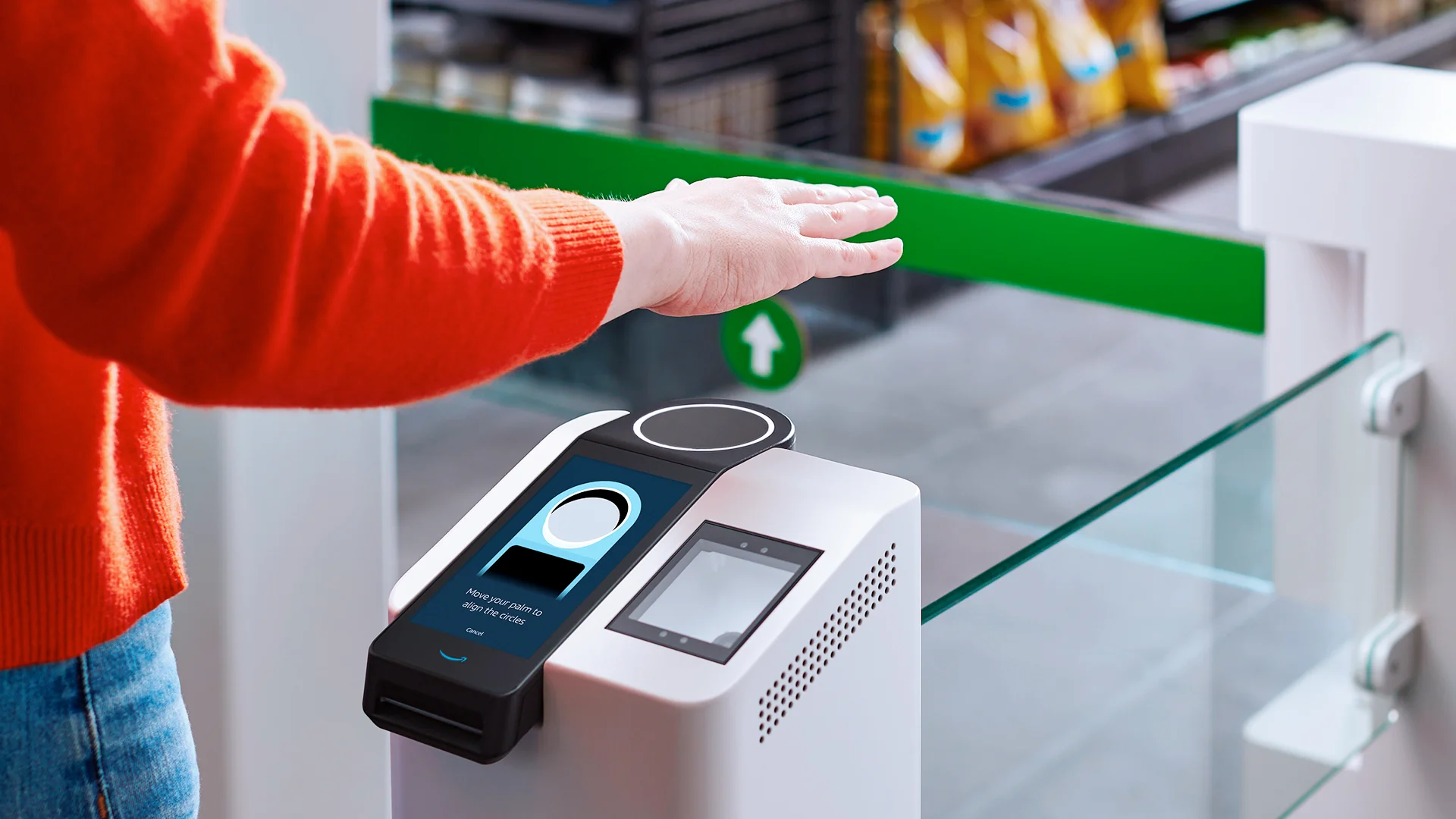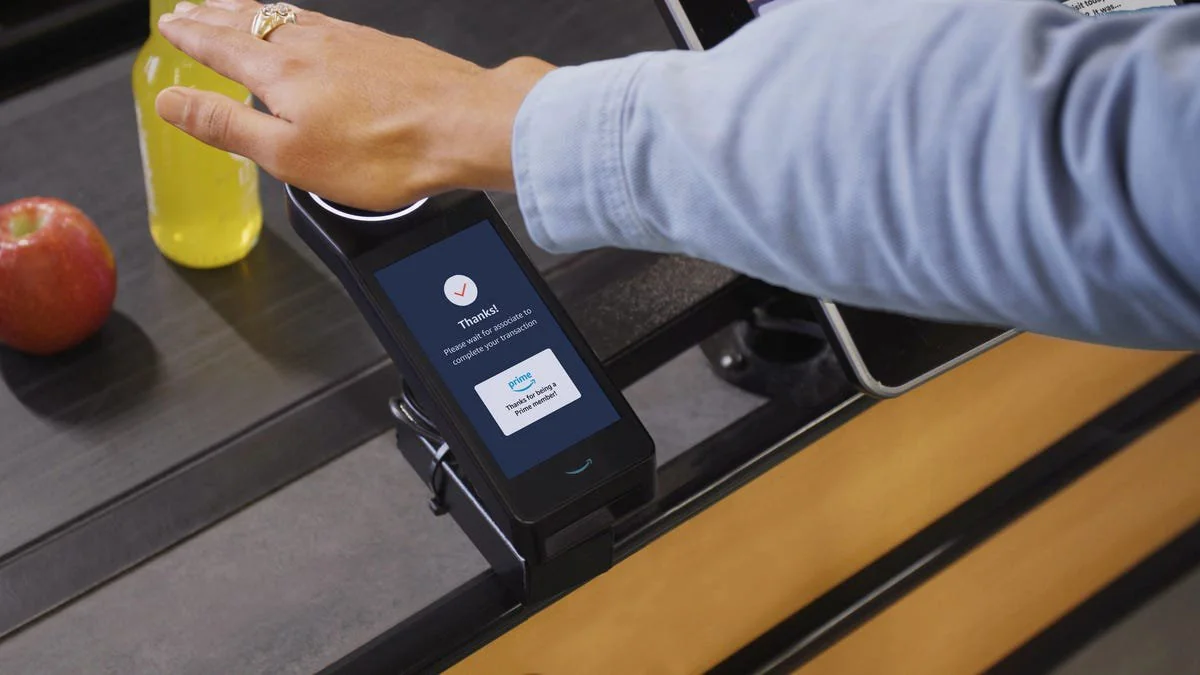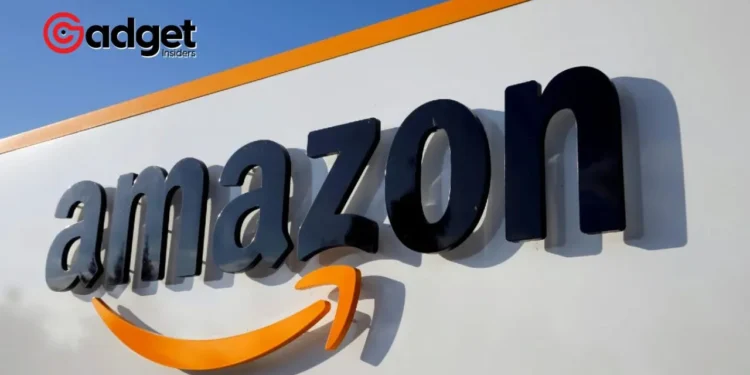In a bold stride toward revolutionizing the shopping experience, Amazon has unveiled a new method for customers to breeze through payments with nothing more than a palm scan. This futuristic technology, part of Amazon’s Amazon One biometric payment service, promises a more streamlined and frictionless transaction process, aligning perfectly with the e-commerce behemoth’s reputation for pioneering convenience in the retail landscape.
However, this advancement has not been met without skepticism. Privacy advocates and critics are raising alarms over potential ramifications for personal privacy and the broader implications of such technologies in our society.
At the heart of their concerns is a fear that this could usher in an era of unprecedented social surveillance and control, a theme that resonates deeply in our increasingly digital world.
The Promise of Convenience vs. The Price of Privacy
Amazon’s announcement on March 28 highlighted the launch of a new application that allows users to register for the Amazon One service remotely, marking a significant shift from the previous requirement to sign up at physical locations.
This change is touted as a leap forward in user convenience, enabling people to integrate their biometric data into Amazon’s ecosystem from anywhere, at any time.

The service has been portrayed as a boon for both consumers and retailers, promising quicker checkout lines and a smoother shopping experience. Since its inception in 2020, Amazon’s palm scanners have been deployed across numerous retail outlets, amassing over 8 million uses—a testament to the technology’s growing acceptance and popularity.
Yet, the road to this biometric future is fraught with privacy concerns. Critics argue that the lack of stringent laws to safeguard sensitive personal information leaves too much room for misuse.
They fear that such technologies, in the hands of corporations with checkered histories regarding data security, could lead to a dystopian world where personal freedoms are curtailed under the guise of convenience and efficiency.

Voices of Dissent: Warnings from the Watchful
James Lindsay, an outspoken critic of societal trends toward surveillance and control, views Amazon’s latest offering as a harbinger of a grim future. He warns of a “digital enslavement” facilitated by technologies that reduce individuals to mere data points, ripe for exploitation.
“Digital enslavement” at the hands of a tech-driven constellation of mechanisms is a real risk, echoing concerns about systems like China’s social credit system.
Lindsay and others argue that the true danger lies in the normalization of these technologies, which could pave the way for a system where individual liberties are compromised for the sake of convenience and security.
The critics’ narrative paints a picture of a society where people are unwittingly lured into a digital trap that promises ease and efficiency but delivers control and surveillance.
Experts Warn of ‘Digital Enslavement’ as Amazon Pushes Palm-Scan Payment Service
Amazon has rolled out tech to facilitate palm-scanning payments, drawing criticism from experts on privacy and social surveillance and control.https://t.co/6FldV4l8zw
— The Epoch Times (@EpochTimes) March 30, 2024
Amazon’s Stance: Security and Privacy in the Balance
In response to these concerns, Amazon maintains that customer privacy and data security are paramount. The company assures that the palm images captured by the Amazon One app are encrypted and securely stored, with numerous safeguards in place to prevent unauthorized access or misuse.
However, these assurances have done little to quell the fears of privacy advocates, who argue that the potential for abuse far outweighs the benefits touted by the company.
The Future of Digital Identity: A Double-Edged Sword
The debate over Amazon’s palm-scanning technology highlights a broader discourse on the future of digital identity and the role of biometric data in our lives. While the convenience of such technologies is undeniable, the trade-offs in terms of privacy and autonomy raise significant ethical and moral questions.
As we venture further into this brave new world, the balance between innovation and individual rights will continue to be a contentious issue.

In the face of these advancements, society must engage in open and informed discussions about the direction we’re heading.
The choices we make today will shape the landscape of our digital tomorrow, determining whether we stride confidently into a future of unprecedented convenience or slip into a state of digital enslavement, where our freedoms are dictated by the very technologies we embraced for ease and efficiency.










